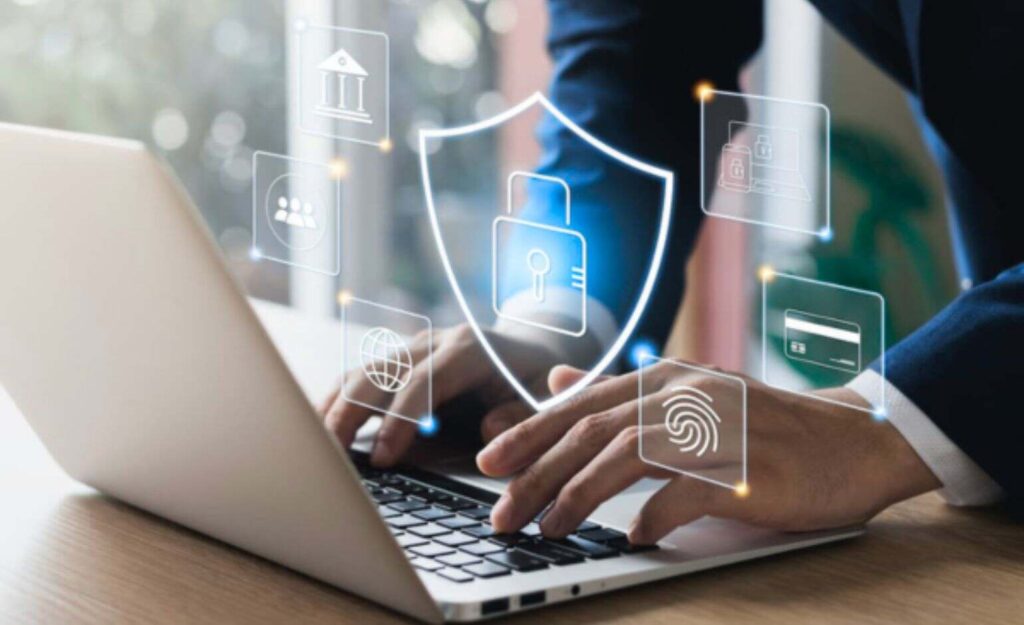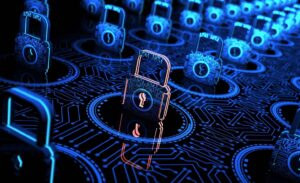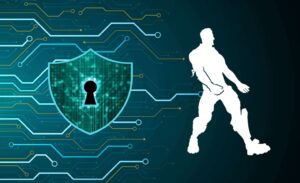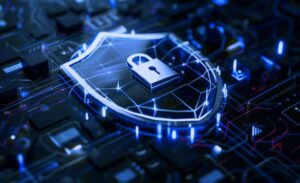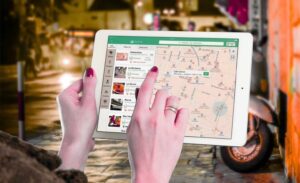Your home computer stores much more than files. It holds your personal information, financial details, and passwords. If left unprotected, these assets can be easy targets for cybercriminals looking to steal data or cause damage. So, how can you protect your home computer effectively and stay one step ahead of these threats?
This expert guide offers simple, practical advice on securing your PC. From boosting your cyber awareness to strengthening your home computer network security, these steps will help you safeguard your digital life.
What is Cyber Awareness for Home Computer Security
Cyber awareness means knowing the risks and recognizing threats that could compromise your computer. This foundation helps you avoid common pitfalls like phishing scams, unsafe downloads, and suspicious links.
Being aware of these dangers is the first line of defense. Educate yourself on how hackers operate and stay updated with the latest security news to maintain a vigilant approach toward your computer’s safety.
Why Protecting Your Home Computer Matters
Your home computer isn’t just a device for browsing or streaming. It stores sensitive information like your banking details, personal photos, and login credentials. Cybercriminals target these devices because they often have weaker defenses compared to business networks.
If your computer is left unprotected, you risk falling victim to identity theft, ransomware attacks, or data loss. For instance, ransomware can lock your files until you pay a hefty fee. Malware infections can slow your system or spy on your activities.
In 2023, it was estimated that over 60% of cyberattacks targeted individuals at home rather than corporations. This indicates how important it is to take home computer security seriously.
Protecting your computer creates a barrier against these risks, ensuring your personal data remains safe and your device runs smoothly.
Building Cyber Awareness: Your First Line of Defense
Cyber awareness means knowing the threats that exist online and how to avoid them. It’s your first and most important defense against attacks.
Many cyberattacks start with simple tricks like phishing emails. These messages look real, but they try to steal your passwords or infect your computer with malware. Learning to spot these scams can save you a lot of trouble.
Watch out for emails asking for urgent action, unfamiliar senders, or links to websites that don’t look right. When in doubt, don’t click.
Also, be cautious about what you download or which websites you visit. Avoid clicking on ads or pop-ups that seem suspicious.
Developing good cyber habits helps prevent infections before they start. It’s the best way to protect your home computer in today’s digital world.
Keep Your Software Updated
Keeping your software up to date is one of the simplest yet most effective ways to protect your home computer.
Software developers regularly release updates that fix security vulnerabilities weak spots hackers can exploit to break into your system. These patches are like locks on your digital doors.
This applies not only to your operating system but also to web browsers, antivirus software, and apps you use daily. Outdated software is an easy target for cybercriminals.
Set your computer to install updates automatically so you don’t miss critical security fixes. If automatic updates aren’t an option, make it a habit to check for updates regularly.
Staying current with updates closes gaps in your security and keeps your computer running smoothly.
Use Strong, Unique Passwords and Password Managers
Passwords are the keys to your digital life. Using weak or repeated passwords across multiple accounts puts your security at serious risk.
A strong password combines uppercase and lowercase letters, numbers, and symbols. Avoid common words, birthdays, or simple sequences like “12345.” The longer and more complex, the better.
Remembering many strong passwords can be tricky. That’s why password managers are a game-changer. These tools generate strong passwords for you and store them securely, so you don’t have to memorize each one.
Using unique passwords for every account means that if one password gets compromised, others remain safe. This simple habit dramatically improves your protection.
Install and Maintain Reliable Antivirus Software
Antivirus software acts as your computer’s security guard. It scans your system for viruses, malware, and other threats, helping to detect and remove them before damage occurs.
Choosing a trusted antivirus program is essential. Look for features such as real-time scanning, automatic updates, and high malware detection rates. Free options are available, but paid versions often provide better protection and support.
Running full system scans regularly ensures that any hidden threats are caught early. Never disable your antivirus software, even temporarily, as this leaves your computer exposed.
Maintaining active antivirus protection is a cornerstone of how to protect your PC from viruses and malware effectively.
Enable and Configure Firewalls
A firewall is a critical shield that monitors and controls the data flowing between your computer and the internet. Think of it as a gatekeeper, blocking unauthorized access while allowing safe traffic.
Most computers come with a built-in firewall. Make sure it’s turned on and properly configured. This simple step adds an important layer of protection against hackers trying to access your system remotely.
For added security, especially if you have multiple devices or run a home server, consider using a dedicated firewall device or advanced firewall software. These can provide stronger control over your home computer network security.
By enabling and maintaining your firewall, you reduce the chances of cyber attackers gaining entry to your system.
Strengthen Your Home Network Security

Your home network connects all your devices to the internet, making it a prime target for cybercriminals if not properly secured.
Start by changing your router’s default username and password. These factory settings are well-known and easy for attackers to exploit.
Set a strong, unique Wi-Fi password. Avoid simple or common passwords like “password123” or your address.
Enable the latest network encryption standard, WPA3, which is currently the most secure. This encryption protects your data as it travels between your devices and the router.
Disable guest networks if you don’t use them, as they can create additional entry points for unauthorized users.
Finally, avoid using public Wi-Fi for sensitive tasks such as online banking or shopping. Public networks often lack strong security, exposing your data to potential interception.
Implementing these steps fortifies your home computer network security and keeps intruders out.
How to Avoid Malware: Best Practices
Malware can enter your computer through many channels, from email attachments to unsafe downloads. Avoiding malware is about recognizing risks and making smart choices.
Never open unexpected email attachments or click on links from unknown senders. Phishing emails often carry malware disguised as legitimate messages.
Only download software and files from trusted websites. Avoid peer-to-peer sharing platforms or unofficial sources, as they’re common carriers of malicious software.
Use browser security extensions that block dangerous websites and alert you about phishing scams. These add an extra layer of protection while you browse.
Most importantly, back up your important data regularly, whether on an external hard drive or cloud storage. If malware ever infects your system, having backups ensures you won’t lose critical files.
By following these habits, you significantly reduce the risk of malware infections.
Additional Security Measures
Taking extra steps can greatly enhance your home computer’s safety beyond the basics.
Multi-Factor Authentication (MFA)
MFA adds a second verification step when logging into accounts, usually a code sent to your phone or generated by an app. This means even if someone steals your password, they can’t access your account without the second factor. Activate MFA on your email, banking, and social media accounts whenever possible.
Be Careful with USB Drives
USB drives can carry viruses or malware from other devices. Always scan any USB or external drive with your antivirus before opening files. Avoid plugging in drives from unknown sources, which could infect your computer instantly.
Limit Administrative Access
Use a standard user account for everyday tasks instead of an administrator account. Administrator accounts have higher privileges and can make system-wide changes, which malware can exploit. Limiting admin access reduces the chance of accidental or malicious damage.
Educate Everyone in Your Home
Security depends on all users. Teach family members or roommates about cyber awareness and safe computer habits. If one person falls for a scam or downloads malware, it can affect the whole network.
These extra precautions create stronger defenses and reduce vulnerabilities in your home computing environment.
What to Do If Your Computer Is Compromised
Even with strong protections, sometimes attacks happen. If you suspect your computer has been hacked or infected, act quickly to limit the damage.
First, disconnect your computer from the internet. This stops hackers from accessing your system or spreading malware further.
Next, run a full antivirus scan to detect and remove any malicious software. Use a reputable antivirus program and ensure it’s fully updated before scanning.
Change your passwords from a different, secure device, especially for important accounts like email, banking, and social media. If your passwords were stolen, this prevents further unauthorized access.
If you have recent backups, consider restoring your system to a clean state. This can remove malware and recover lost files.
If problems persist or you’re unsure how to proceed, seek help from a cybersecurity professional. Quick, informed action minimizes risks and helps you regain control of your computer.
Your Digital Fortress Starts Here
Protecting your home computer isn’t a one-time task, it’s a continuous commitment to staying vigilant and informed. By adopting these expert strategies, you’re building a digital fortress that keeps your data safe and your peace of mind intact.
Remember, every update, every strong password, and every cautious click brings you closer to a secure online world. Start today, stay secure tomorrow, and make your home computer a trusted ally in your digital life.


